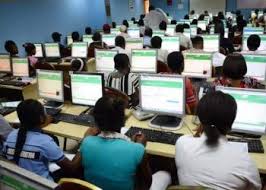The announcement by the Federal Ministry of Education that it plans to create guidelines for 18 years age limit on university admissions and ordinary level examinations is no longer news, as it raised oppositions from both parents and education stakeholders.
However, the Minister of Education, Professor Tahir Mamman, on Thursday, October 10, announced that the ministry planned to create guidelines for the previously announced policy. These guidelines would address issues of students and applicants who are exceptionally intelligent and do not meet the required age. He also stated that with the way the policy was announced earlier, there is need for some clarifications on the examinations influenced by the policy.
“There is a need to clarify the misconceptions surrounding the 18-year age limit for university admissions. The ministry is simply emphasizing on the age requirement for entry into tertiary institutions as outlined in the National Policy on Education (6-3-3-4 System), the UBEC Act and the Education (Minimum) Standards Act in 1993 and not the age limit for students participating in WAEC, NECO, NBAIS, NABTEB and other Ordinary Level examinations.
“Nevertheless, the ministry acknowledges that some children are exceptionally intelligent and the ministry will work out a guideline to deal with cases of exceptionally intelligent learners”, he said.
The plans to create guidelines exempting exceptionally intelligent students from the policy are, in fact, concerning. This plan raises the question of what the Federal Government and the Ministry of Education would use to discern these exceptionally intelligent learners. The guidelines to be created would explain the standard the government regards as exceptionally intelligent for these learners and applicants. Hopefully, these guidelines would clear thoughts of double standards in education and answer questions on the minds of students and other stakeholders when they are released by the ministry.
Opposition to the policy originally stems from the fact that the majority of applicants for the Unified Tertiary Matriculation Examinations (UTME) are fresh secondary school graduates who are not up to the age required. Due to this policy, many of these secondary school graduates would be held back from gaining admission for about a year, and for some, two years.
This time spent away from the academic environment might have one or two effects on these students. Many of these young people would be idle during the period, and as the saying goes “an idle mind is the devil’s workshop”, some of them might begin to engage in nefarious activities because they have a lot of free time on their hands. Perhaps, the government could engage these young minds with programmes while they wait to gain admission.
In this present time where young secondary school graduates are in a haste to gain admission into tertiary institutions, those delayed could begin to look for ways to circumvent the policy. Such thoughts would eventually lead to ideas like falsification of documents in order to qualify for admission.
On the positive side, the time could be used by secondary school graduates to cultivate and develop basic skills they can use to survive while in school and beyond. With the state of the country, university certificates are not enough to get white-collar jobs, so people have to survive through other means. This is where skills acquisition comes in. The time can be used to learn new skills.


